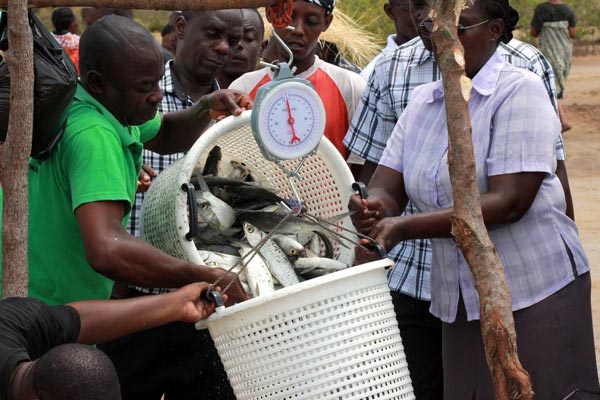One Nakuru farmer, who plunged into dove and pigeon rearing, is fetching tens of thousands of shillings every month out of sales from these little bird, which he says, are dismissed as lads' play pets.
Dennis Chege makes between Sh90,000 and Sh120,000 a month from his two farms in Eldoret and Nakuru.
“Many people look down upon these birds and dismiss them as boyish business. This is what has seen my business grow since 1998 when I started with two pairs of birds. The notion has let it remain largely a virgin venture in most part of the country unlike chicken rearing,” he said.

Chege sells every pair at Sh600.
And he says despite rearing more than 1,000 birds, he is not able to meet the demand, which he says keeps rising day by day.
Doves and pigeons are symbols of humility and love in some religious organisations while in social set-ups, they are ornamental.
These makes churches, children and elderly homes and social organisations to be his main customers.
“Catholic Church weddings and other social events are graced by these 'humble' birds. Sometimes am asked to supply up to 400 birds, but I do not have the capacity to do so. In such cases, I call on my farming networks to help. The market is rich, the supply is poor,” he said.
He considers this agribusiness less demanding and cheaper in the long-run when compared to chicken.
With a bird laying two eggs, it takes only 18 days to hatch into squabs. Within one and half months, they are mature to give rise to other young ones. After one week, the female again lays eggs and the cycle continues.
He regularly vaccinates them against Newcastle disease, which he says is one of the most dangerous infection that can quickly wipe the cote.
Chege, who also works as a closed circuit television operator in Eldoret, says kitchen remains form part of the meals for the birds.
But he also spends Sh7,500 on grade II flour, which he cooks into ugali for the birds.
Wheat and rice and other small supplementary feeds keep his brood full for a month.
“I feed them in the morning and early after noon. I also water them and that completes a day,” Chege says.
Although meat from the birds is not common, he says few other agribusiness people are showing interest in popularising this product.
What one needs to start this business is just a small cage and feeds. For small starters, the birds can be fed on kitchen remains, he says.
Chege can b reached on 0725012098.
Write comment (0 Comments)
















